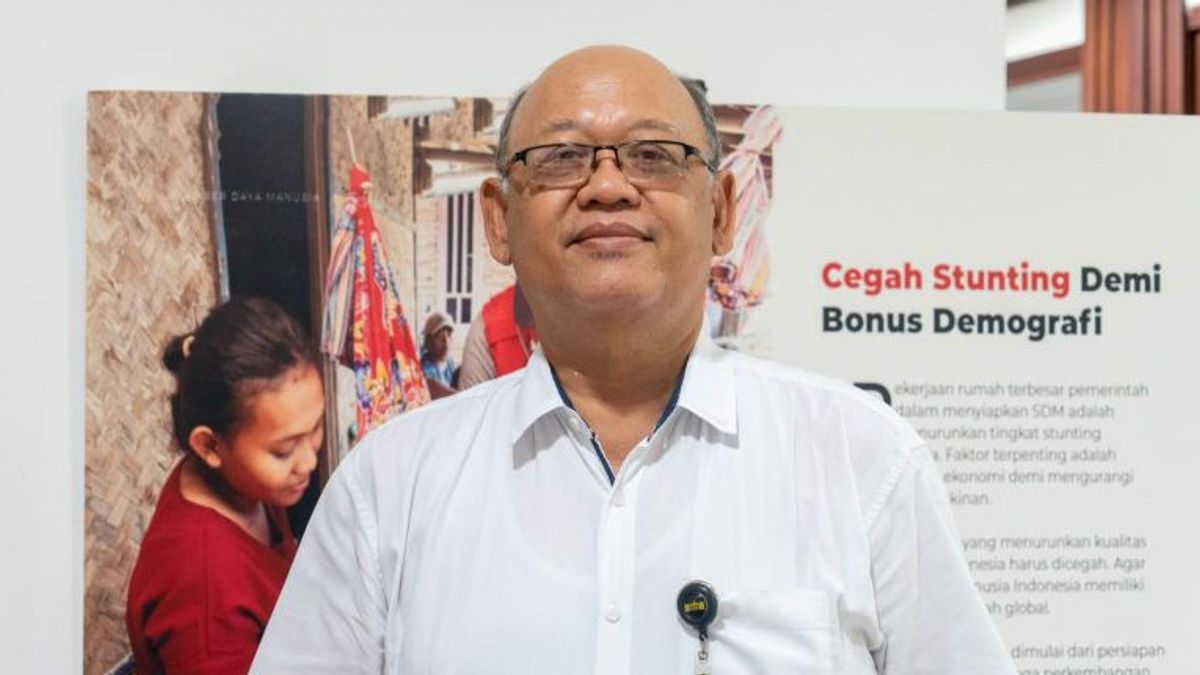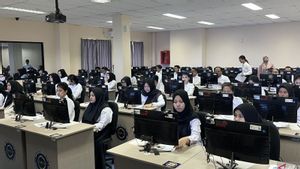JAKARTA - The Presidential Staff Office (KSP) declared Indonesia's success in maintaining economic resilience during the COVID-19 pandemic and amid global uncertainty due to the balance of President Joko Widodo (Jokowi)'s "gas and brake" policy.
According to KSP Expert Edy Priyono in his statement in Jakarta, Tuesday, July 19, President Jokowi has consistently maintained a balance between handling public health and the economy. The policy balance between health and the economy is what is meant by the “gas and brakes” approach.
Despite being criticized by various parties at the beginning of its implementation, according to Edy, this strategy has succeeded in bringing the Indonesian economy back to life and continues to grow. Indonesia's economic growth in the first quarter of 2022 was recorded at 5.01 percent (year on year).
“Now it is proven that President Jokowi's 'gas and brake' strategy has worked very well. Not only in handling the pandemic but also in economic recovery," said Edy.
According to Edy, Indonesia's economic resilience has been tested and recognized by the world.
He said the Managing Director of the International Monetary Fund (IMF) Kristalina Georgieva when meeting President Joko Widodo on Sunday, July 17, said that Indonesia was in a better situation, as seen from various economic indicators, such as economic growth, inflation, currency exchange rates, balance of payments, fiscal and monetary performance.
According to Edy, the government is also consistent in implementing efforts to control national inflation. Although the inflation rate in June 2022 is relatively high than usual, reaching 4.35 percent (year on year), but when compared to many other countries, Indonesia's inflation is still relatively under control.
Inflation control, said Edy, was carried out from two sides, namely monetary policy and fiscal policy. The monetary authority of Bank Indonesia (BI) is still maintaining the benchmark interest rate. On the other hand, BI increased the Statutory Reserves (GWM) so that the amount of money in circulation is not too large so that inflation is more controlled.
Meanwhile, from a fiscal perspective, said Edy, the government is trying to maintain food and energy prices amidst global commodity price fluctuations. This effort was made by increasing the budget for subsidies and compensation for energy, both fuel oil (BBM), electricity, and LPG.
"Because we know that the increase in the price of subsidized fuel and gas will trigger an increase in the prices of various goods and services which have implications for even higher inflation rates," said Edy.
"The government is also consistent in implementing social protection programs to maintain the purchasing power of the underprivileged in the midst of rising prices for goods and services," Edy added.
He also said the government was trying hard to reduce unemployment with economic stimulus and launched various trainings to provide provisions for prospective workers.
"So far, economic growth has succeeded in reducing the unemployment rate from 6.49 percent as of August 2021, to 5.83 percent as of February 2022," said Edy.
The English, Chinese, Japanese, Arabic, and French versions are automatically generated by the AI. So there may still be inaccuracies in translating, please always see Indonesian as our main language. (system supported by DigitalSiber.id)













